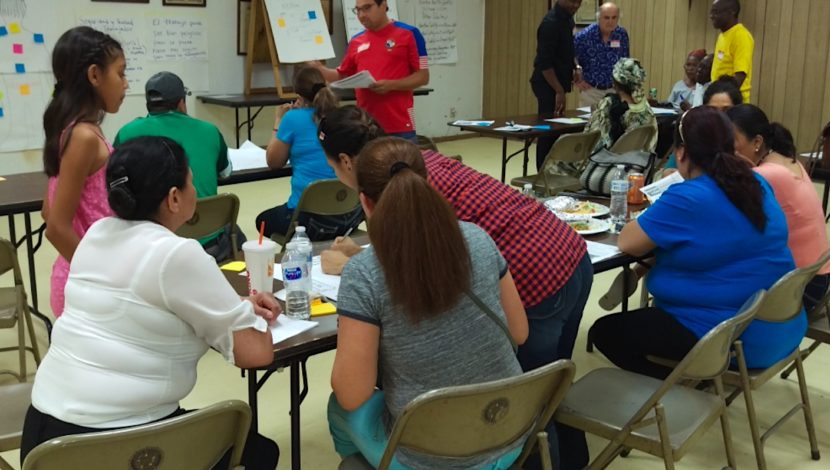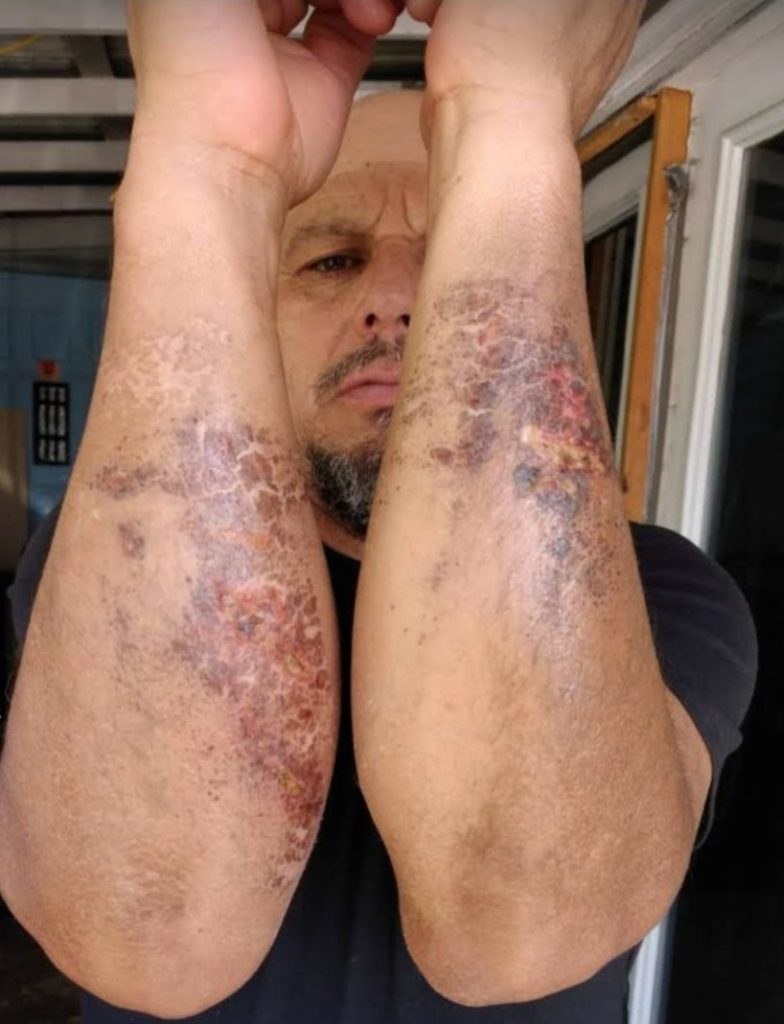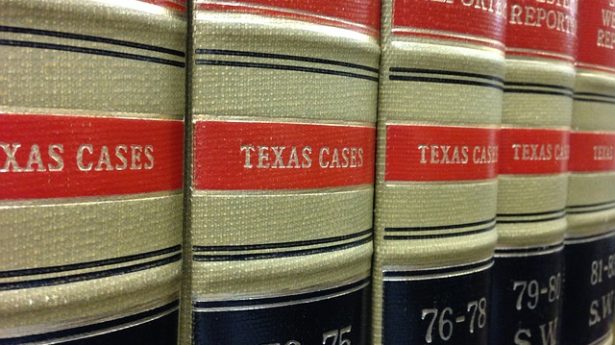The Unitarian Universalist Service Committee advances human rights through grassroots collaborations.
A Conversation with Rural Community Workers Alliance

By on October 15, 2018
Rural Community Workers Alliance (RCWA) has been making strides in rural America to build welcoming, inclusive communities for refugee and immigrant workers and Latinx populations. The organization has been especially focused on empowering groups that are vulnerable to human rights abuses, including workers in food, meat processing, and confined animal-feeding operations.
Recently, the staff at RCWA joined us for a Q-and-A, sharing insights into their strategies and how human rights advocates can resist the criminalization of our neighbors and build safer, more just and welcoming communities.
What would you like people to know about the human rights issues you’re working to address?
RCWA: Jobs in the meat processing industry are among the most dangerous in the United States. For immigrants and refugees, their social status and lack of knowledge about their rights can make them more vulnerable to abuses, injustices, and mistreatment by employers and supervisors. On multiple occasions it has been reported that workers were denied bathroom breaks, resulting in them urinating on themselves or abstaining from fluids. The high speed at which work lines in the processing plants often operate also puts workers at risk of accidents and injuries from repetitive movements. There have been many cases when workers have not received proper compensation after an on-the-job injury. Laws must be improved to protect workers from these atrocities and empower them to speak out for their rights.
What strategies have you used to build welcoming communities and resist criminalization?
RCWA: We focus on supporting immigrant and refugee leaders’ empowerment. This includes organizing solidarity meetings with workers from diverse backgrounds to share ideas on how to address issues affecting them. We also work to strengthen relationships with other organizations who are creating positive change and build connections with community leaders’ congregations, institutions, and local authorities. Likewise, we strive to expose citizens and consumers to the issues impacting people who are vulnerable to abuse in our community.
Can you share a story of a community member’s experience that has been impactful for the RCWA team?
RCWA: We have supported many workers to gain courage to file their grievances with the worker compensation division and claim compensation after having suffered injuries at work that their employers did not report. This was the case for José who suffered severe acid burns at his workplace when cleaning a machine. His employer did not report the accident, arguing that his injuries were minor. We helped José understand his rights, and he filed his own claim to be compensated for the scars and damage.

How can people support you and similar organizations in your work?
RCWA: Consumers should do everything possible to find out where their groceries come from to make sure the companies that make their food provide employees with good working conditions. Communicate with your elected officials or decision makers to improve laws and policies that uphold workers’ rights. And participate in campaigns that seek to improve respect for civil rights and labor rights.
What are your thoughts on the value of joining together as advocates and grassroots organizers in this moment?
All grassroots organizations together with communities, foundations, congregations, institutions, elected officials, and individuals must work together to address the negative rhetoric that affects us and threatens the well-being of the people in our communities.
Read This Next
Workers Organizing for Welcoming Communities
Across the country, in cities large and small, people are organizing to build communities that are inclusive, embrace new members, and celebrate the diverse contributions and experiences of all their residents. Through our grantmaking and advocacy, UUSC has tapped into this energy to amplify these efforts. Read More →
